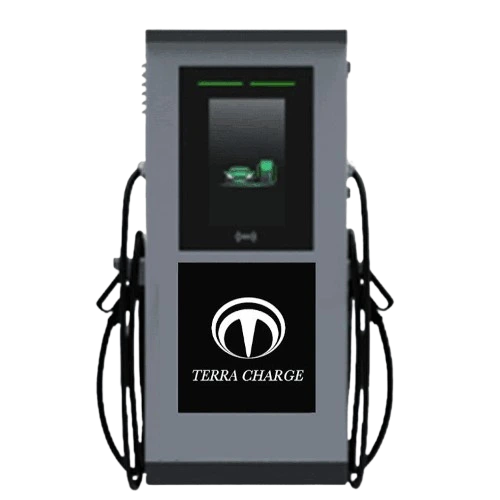| CNG Car | EV Car |
| Compressed Natural Gas (CNG) | Electricity |
| Produces emissions | Zero tailpipe emissions |
| Fuel cost is less | Electricity costs vary by region |
| Limited range compared to gasoline | Varies depending on battery capacity |
| Limited refueling stations | Expanding charging network |
| Requires conversion or specific models | Available from manufacturers or conversion kits |
| Similar performance to gasoline cars | Instant torque and smooth acceleration |
| Lower emissions compared to gasoline | Highly eco-friendly with zero emissions |
What is an Electric Vehicle?
An Electric Vehicle is a vehicle powered by electric motors rather than internal combustion engines, as seen in gasoline-powered cars. EVs use rechargeable batteries to store electricity, which can be replenished by connecting to an electric power source commonly referred to as EV Chargers.
What is a CNG Car?
A Compressed Natural Gas car is a type of vehicle that uses compressed natural gas as its fuel source instead of traditional gasoline or diesel. CNG cars have internal combustion engines adapted to burn natural gas, and they store the compressed gas in specially designed tanks. These vehicles are considered an alternative to traditional fuel options, offering potential environmental benefits and cost savings.
Benefits of CNG Car
- Environmental Friendliness: CNG cars produce fewer emissions compared to gasoline or diesel vehicles, contributing to improved air quality and reduced greenhouse gas emissions.
- Cost Savings: Natural gas is often cheaper than gasoline or diesel, resulting in lower fuel costs for CNG car owners.
- Fuel Availability: Natural gas is widely available in many regions, offering greater accessibility to fueling stations for CNG vehicle owners.
- Engine Longevity: CNG burns cleaner than conventional fuels, potentially leading to reduced engine wear and extended engine life.
- Government Incentives: Some governments offer incentives, such as tax breaks or subsidies, to encourage the adoption of CNG vehicles, providing additional cost savings to owners.
Drawbacks of CNG Car
- Limited Range: CNG vehicles typically have a shorter driving range compared to gasoline or diesel vehicles due to the lower energy density of natural gas.
- Fueling Infrastructure: While natural gas fueling stations are available in some areas, the infrastructure for CNG refuelling is not as widespread as traditional fuel stations, limiting the convenience of owning a CNG car.
- Conversion Costs: Converting a vehicle to run on CNG or purchasing a new CNG car can involve higher upfront costs compared to conventional gasoline or diesel vehicles.
- Trunk Space Reduction: CNG tanks require space in the vehicle, often resulting in reduced trunk space or storage capacity.
- Performance Trade-offs: CNG vehicles may experience reduced performance compared to gasoline or diesel counterparts, including lower horsepower and torque output.
How is CNG Better Than EV?
- Fuel Availability: CNG benefits from an established refuelling infrastructure in many regions, providing ready accessibility to consumers. On the other hand, EV charging infrastructure is expanding, but its accessibility may still vary in some areas.
- Range and Refueling Time: CNG vehicles typically offer a longer range compared to EVs and boast quick refuelling times akin to conventional gasoline vehicles. This can offer drivers a sense of convenience and familiarity, aligning with traditional refuelling practices.
- Cost: In certain regions, CNG may present cost advantages concerning fueling and vehicle purchase prices compared to EVs. Additionally, converting existing vehicles to CNG is often a less expensive option than investing in a new EV.
- Performance: CNG vehicles often deliver performance characteristics similar to gasoline vehicles, providing drivers with a familiar experience in terms of acceleration and power delivery.
- Emissions: While not achieving zero-emission status like EVs, CNG vehicles generally produce lower emissions than traditional gasoline vehicles. This contributes to improved air quality and environmental sustainability.
Conclusion
CNG and electric vehicles both have advantages and drawbacks, catering to different consumer preferences and needs. CNG cars provide benefits such as lower fuel costs, established refuelling infrastructure, and similar performance to traditional gasoline vehicles. On the other hand, electric vehicles offer zero tailpipe emissions, potential cost savings on fuel, and instant torque for smooth acceleration. The choice between the two depends on factors such as fuel availability, driving range, refuelling infrastructure, upfront costs, and environmental considerations. As technology evolves and infrastructure expands, CNG and EVs contribute to the transition towards cleaner and more sustainable transportation options.











